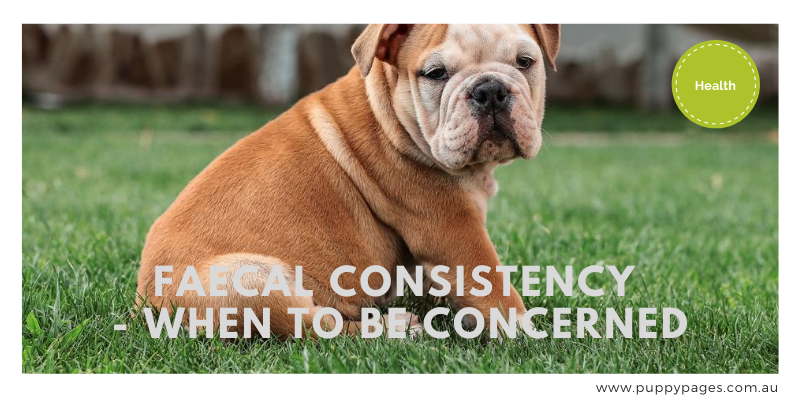
We have all, at some stage, been picking up our dog’s poo and thought “mmmm that doesn’t look normal”
Knowing the consistency, colour, coating, and content of our pets poo is extremely important as it can tell us a lot about what they are ingesting, any possible underlying behaviour concerns i.e stress/anxiety, or if there is something medically going on. As we always recommend, if you are concerned give your vet a call. They may advise that you bring in a fresh sample for analysis. The fresher the sample, the more a vet can make an accurate diagnosis.
A normal dog poo should be brown in colour and be firm in consistency and have no mucus coating.
When should I be alarmed?
It is not only our pet’s faeces that we should be monitoring when we have concerns but also that of their demeanor and any changes to their normal appetite or routines. Here is some information that may help in regards to their faecals.
Consistency
The consistency of your pet’s poo can be put into a scale of 1-7. With 1 being very firm and 7 being very soft or that of diarrhoea. Most normal dog poo is around a 2 on the scale. However, if you find your pet has more of a softer consistency, then it may be worth monitoring them to see if it continues. Sometimes there is no need to be alarmed and your friend has simply an upset stomach and it will rectify itself just like ours do.
Colour
Like mentioned earlier, a normal poo colour is similar to a chocolate brown. However if you find it has a green colour to it, this may indicate that they are experiencing a bit of an upset stomach or they enjoy eating your grass.
If you believe your pet’s faeces is more of a black/maroon, yellow, or has red streaks then this is more of a concern and we highly recommend collecting a sample and contacting your vet. Colours such as these could be an indication of bleeding in the gastrointestinal tract or issues with your pet’s liver, gallbladder, or pancreas.
Content
Checking what is actually in our pet’s poo is not a pleasant job and you may want to leave this part to your vet. However, something may be obvious and important to make note of when looking.
Foreign objects such as plastic toys, clothes, garden objects, and anything they can get their teeth in to really, can often come out in their poo. The concern may be that some of the item may be lodged and cause for serious concern. When this is cause for concern your vet will want to perform an x-ray to determine if anything is causing an obstruction.
Worms can be hard to see at times, and a vet is more likely to see them under a microscope. However, it is sometimes possible to see live worms moving around in your pet’s poo. Worms can be long and skinny or even look like grains of rice.
Clumps of fur can be signs of over grooming, skin disease, and allergies should be discussed with a vet to determine if over-grooming is stress-related or if the concern is disease or allergies then what is causing these medical issues.
It is important to remember that poo can tell us a lot about the health of your furry friend and any drastic changes in his/her faeces as well as appetite and demeanor should be directed to your vet.
The information on PuppyPages website is not meant to replace first hand treatment of your dog by a professional vet. Always consult your vet for medical and health care advice. You should not rely on any of the information on this website for medical diagnosis, treatment options or other health care decisions about your pet. When possible we have articles fact checked by experienced Vets and Vet Nurses. Read full Disclaimer here
